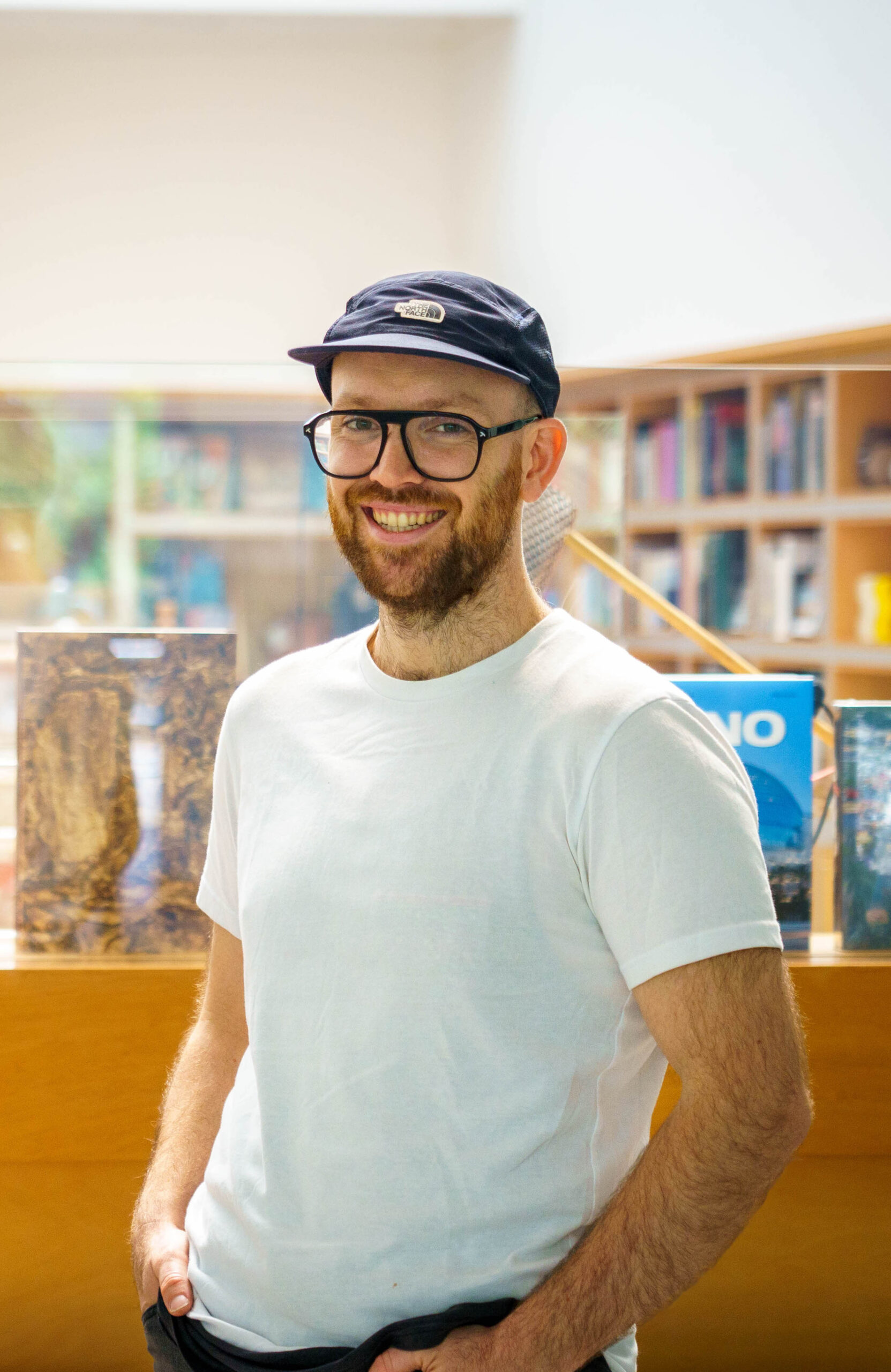Patrick Blenkarn
Conceptual Artist
Bachelor of Arts (Hons), 2013
Every performance is different, depending on the social negotiations that go on. It’s about giving an audience the chance to make the theatre their own space … it’s about returning to a kind of ‘politics of the basement’ and amplifying that.
Picture this: you’re in a darkened theatre with about 150 other people. Everyone is hushed until a spotlight shines on a video game controller placed at centre stage. There’s an instant of collective bewilderment until an audience member approaches the controller, picking it up and turning to the assembled crowd with a shrug.
“Press X,” someone shouts. And the entertainment—part videogame, part performance, part marathon—begins, with 10 episodes and four intermissions to follow, unspooling over seven to eight hours.
asses.masses is the brainchild of conceptual artists Patrick Blenkarn, who graduated from King’s in 2013 with Combined Honours in Contemporary Studies and Theatre Studies, and a minor in Film Studies, and his frequent collaborator Milton Lim. The show opens at Mayfest in Bristol, UK later this month, followed by dates at the Festival TransAmériques in Montreal and the Inteatro Festival in Ancona, Italy.
“Every performance is different, depending on the social negotiations that go on,” says Patrick, 33, in a Zoom conversation from Los Angeles. “It’s about giving an audience the chance to make the theatre their own space … it’s about returning to a kind of ‘politics of the basement’ and amplifying that.”
asses.masses is meant to be interactive, with the controller handed off amongst various audience members. Suggestions are yelled out. Food and drink are brought out. Shoes are kicked off. There’s cheering and booing and hooting and hollering, bringing to mind a gladiator amphitheatre or perhaps a Shakespearean comedy at the Globe Theatre circa 1595. The show/play/game is being translated into French, Spanish, Portuguese, Italian, German and Turkish.
The videogame component features 15 donkey characters, with the story commencing as the donkeys start to lose their purpose (pulling ploughs or carts, hauling coal, milling grain) because of technology. Can they convince the humans to give them their jobs back?
“It’s high philosophy meets low-brow theatre meets video gaming,” explains Patrick further.
Is asses.masses the evolution of theatre? Of getting together with friends for a night out? A new way of enjoying a shared experience with strangers?
A playwright and director based in Vancouver, Patrick says traditional theatre has to change. “What does theatre mean to us today? It seems to me that it’s less and less of a sought-after place within our communities. How can we create new work in the tradition of theatre that doesn’t ignore that there’s been some seismic activity in the cultural milieu?”
And asses.masses is only one example of how Patrick , whose artistic endeavours bring together the politics and theatre he studied as an undergrad, is pushing the theatrical artform, making it more interactive and putting play back into the play.
“I had to examine what kind of artist I could be,” says Patrick , “and so I started drawing and, designing interactive experiences and all these came together in a new way when I started making games to be played on a stage.”
Other projects and collaborations in the works include: culturecapital, a competitive card game “that critically engages with and celebrates the ways in which value is created within performing arts economies”; a new videogame show called 2021 that reflects on the digital legacies of those we fundamentally disagree with; a media art exhibition about date palms and cultural regeneration, palmagotchi, set to open in Toronto next year; and videocan, a national video archive for live performances by independent artists.
What keeps him going? The question seems to frustrate Patrick momentarily. “I mean, it’s not something I can turn off,” he says after a pause and a laugh.
Being an independent artist takes rigour, discipline and curiosity—qualities honed when he began the Foundation Year Program at King’s as a teenager.
“It’s a place where you’re given the opportunity to fall in love with ideas and be consumed by them,” he says. “Everyone seizes that opportunity in different ways, but I’ll always want more out of ideas.”
 Connect with Patrick Blenkarn
Connect with Patrick Blenkarn